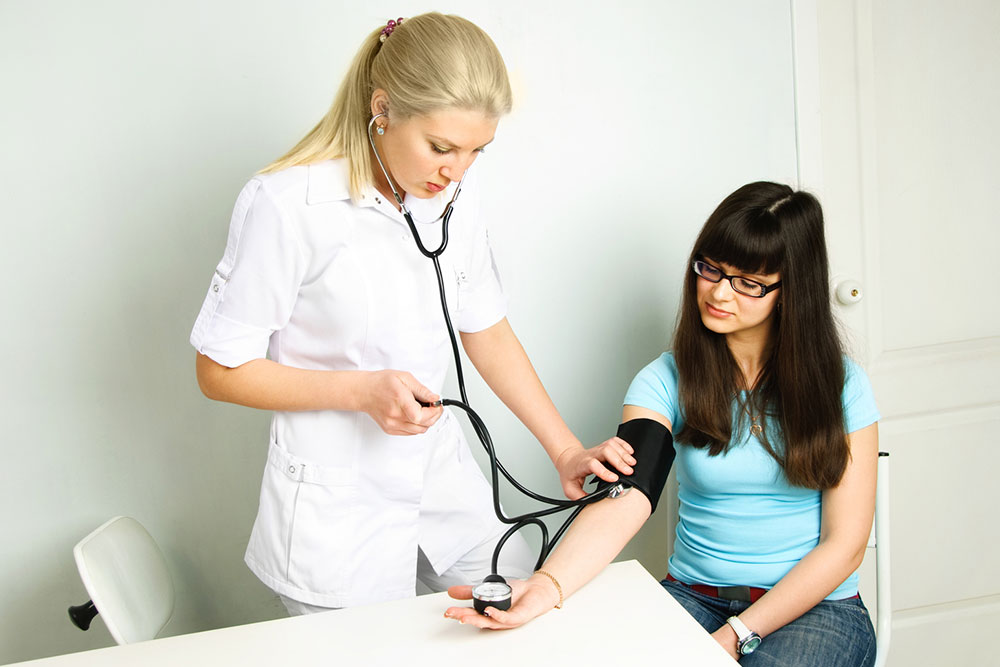8 signs of high blood pressure

High blood pressure (HBP), or hypertension, occurs when the pressure in blood vessels is excessively high. While the condition is common, the lack of treatment could worsen the complication. Most people with hypertension may not experience symptoms for years, even if the pressure is very high. That’s why one must get blood pressure checked to determine the condition. In some cases, one might notice telltale signs indicating the presence of high blood pressure.
Severe headaches
People with high blood pressure may experience headaches because it affects the blood-brain barrier. Excessive blood pressure may result in additional pressure on the brain, leading to blood leakage from the blood vessels in the organ. The leak causes swelling, which applies further pressure on the brain, consequently triggering severe headaches.
Brain fog
In addition to severe headaches, an individual at risk of high blood pressure might also experience brain fog. Excessive pressure on the brain during a phase of hypertension might result in reduced or no oxygen supply to the brain. If left unchecked, the lack of proper oxygen supply could cause brain fog symptoms, including trouble focusing, forgetfulness, difficulty learning, and problems retaining memory.
Dizziness
An individual might feel dizzy for several reasons, including dehydration, exhaustion, or due to various health complications. In some cases, one might experience this symptom due to high blood pressure. It may also occur as a symptom of a specific form of high blood pressure known as pulmonary hypertension. This is a condition where increased pressure on blood vessels occurs in the lungs. As a result, the heart might work harder to pump blood through the narrow vessels to get oxygen into the lungs, leading to symptoms like dizziness.
Red spots on the eye
A red spot on the eye may occur when blood collects under the conjunctiva because of a subconjunctival hemorrhage. The symptom occurs when blood leaks between the layers of the eye, resulting in bright red patches over the white parts of the eye. While it might occur without identifiable causes, experts may associate it with the onset of high blood pressure.
Changes in vision
One of the most common symptoms of high blood pressure that is left unchecked is vision change. In the long run, hypertension may squeeze off blood flow and damage the blood vessels. As a result, fluid might build up under the retina and cause one to lose focus on objects. Moreover, the obstacle could also distort one’s vision and result in complete loss of sight. An individual who experiences this sign or any other symptoms of high blood pressure must see a healthcare professional immediately.
Trouble sleeping
People with high blood pressure might experience symptoms such as trouble falling asleep. The condition occurs when the force of blood pumping through the veins is high. The process applies additional pressure on the blood vessels and causes symptoms like chest pain, difficulty breathing, and headaches. All the signs might keep one up at night, making it difficult to get adequate sleep. Furthermore, the relationship between sleep and high blood pressure is intertwined. When one sleeps, the body naturally lowers blood pressure and regulates the hormones that control the process. The lack of sleep may prevent these functions from following through and lead to elevated hormones over time, which could worsen blood pressure levels.
Nosebleeds
Experts believe that high blood pressure is not the only cause of nosebleeds. But one might notice the symptom when blood pressure gets excessively high, damaging the blood vessels in the nose, which leads to bleeding. Nosebleeds can also be caused by injuries or other underlying health conditions. That’s why one must get the symptoms diagnosed by a healthcare provider to determine the underlying cause.
Back pain
An individual might experience back pain because of several reasons, including hypertension. The aorta is the largest blood vessel in the body that carries blood from the heart to other regions like the abdomen, legs, and arms. It passes through the heart and branches out into multiple capillaries to various organs in the body. High blood pressure may damage the walls of the arteries. So when these walls become weak, the artery may balloon in size, causing severe back pain, which could worsen with time if left untreated.



